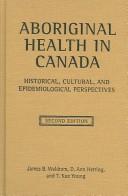| Listing 1 - 8 of 8 |
Sort by
|

ISBN: 083481000X 9780834810006 Year: 1973 Volume: 29 Publisher: New York (N.Y.) Weatherhill
Abstract | Keywords | Export | Availability | Bookmark
 Loading...
Loading...Choose an application
- Reference Manager
- EndNote
- RefWorks (Direct export to RefWorks)
Book
Abstract | Keywords | Export | Availability | Bookmark
 Loading...
Loading...Choose an application
- Reference Manager
- EndNote
- RefWorks (Direct export to RefWorks)

ISBN: 1107130298 1280430338 9786610430338 1139147013 051117845X 051106330X 0511056974 0511305702 0511542534 0511071760 9780511063305 9780511178450 9780511542534 9780511071768 9780521801041 0521801044 9780511056970 0521801044 9781139147019 9780521020114 0521020115 Year: 2003 Publisher: Cambridge ; New York : Cambridge University Press,
Abstract | Keywords | Export | Availability | Bookmark
 Loading...
Loading...Choose an application
- Reference Manager
- EndNote
- RefWorks (Direct export to RefWorks)
Many physical anthropologists study populations using data that come primarily from the historical record. For this volume's authors, the classic anthropological 'field' is not the glamour of an exotic locale, but the sometimes tedium of the dusty back rooms of libraries, archives and museum collections. This book tells of the way in which archival data inform anthropological questions about human biology and health. The authors present a diverse array of human biological evidence from a variety of sources including the archaeological record, medical collections, church records, contemporary health and growth data and genetic information from the descendants of historical populations. The papers demonstrate how the analysis of historical documents expands the horizons of research in human biology, extends the longitudinal analysis of microevolutionary and social processes into the present and enhances our understanding of the human condition.
Medical anthropology --- Physical anthropology --- Biological anthropology --- Somatology --- Anthropology --- Human biology --- Medical care --- Medicine --- Archival resources --- Anthropological aspects --- Life Sciences --- General and Others
Book
ISBN: 1003086373 1000181553 1003086373 1000184730 1474215343 1282596683 9786612596681 1847887562 Year: 2010 Publisher: Oxford ; New York : Berg,
Abstract | Keywords | Export | Availability | Bookmark
 Loading...
Loading...Choose an application
- Reference Manager
- EndNote
- RefWorks (Direct export to RefWorks)
"Until recently, plagues were thought to belong in the ancient past. Now there are deep worries about global pandemics. This book presents views from anthropology about this much publicized and complex problem. The authors take us to places where epidemics are erupting, waning, or gone and to other places where they have not yet arrived, but where a frightening story-line is already in place. They explore public health bureaucracies and political arenas where the power lies to make decisions about what is, and is not, an epidemic. They look back into global history to uncover disease trends and look ahead to a future of expanding plagues within the context of climate change. The chapters are written from a range of perspectives, from the science of modelling epidemics to the social science of understanding them. Patterns emerge when people are engulfed by diseases labeled as epidemics but which have the hallmarks of plague. There are cycles of shame and blame, stigma, isolation of the sick, fear of contagion, and end-of-the-world scenarios. Plague, it would seem, is still among us."--
Epidemics --- Plague --- Famines --- Environmentally induced diseases. --- History.

ISBN: 9780802087928 0802087928 9780802085798 0802085792 Year: 2006 Publisher: Toronto ; Buffalo : University of Toronto Press,
Abstract | Keywords | Export | Availability | Bookmark
 Loading...
Loading...Choose an application
- Reference Manager
- EndNote
- RefWorks (Direct export to RefWorks)
Indians of North America --- Indiens d'Amérique --- Health and hygiene --- Santé et hygiène
Book
ISBN: 0966608445 Year: 2000 Publisher: Los Angeles Cotsen occasional press
Abstract | Keywords | Export | Availability | Bookmark
 Loading...
Loading...Choose an application
- Reference Manager
- EndNote
- RefWorks (Direct export to RefWorks)
Book

ISBN: 9781845458713 Year: 2008 Publisher: New York Oxford
Abstract | Keywords | Export | Availability | Bookmark
 Loading...
Loading...Choose an application
- Reference Manager
- EndNote
- RefWorks (Direct export to RefWorks)
Multi

ISBN: 9781845458713 Year: 2008 Publisher: New York; ; Oxford Berghahn Books
Abstract | Keywords | Export | Availability | Bookmark
 Loading...
Loading...Choose an application
- Reference Manager
- EndNote
- RefWorks (Direct export to RefWorks)
| Listing 1 - 8 of 8 |
Sort by
|

 Search
Search Feedback
Feedback About UniCat
About UniCat  Help
Help News
News